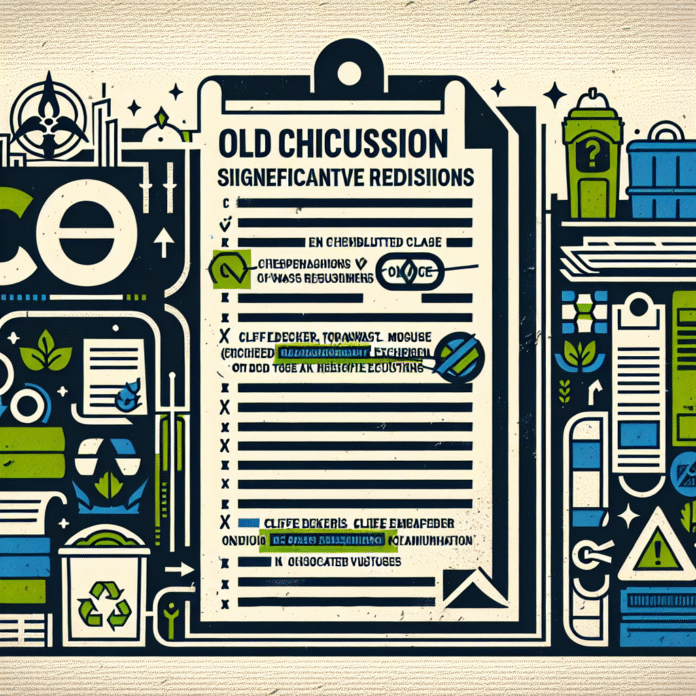Proposed Changes to Waste Exclusion Legal Regime
Cliffe Dekker Hofmeyr
“`html
Proposed Major Revisions to Waste Exclusion Legal Framework
In recent discussions, substantial modifications have been suggested to the legal framework governing waste exclusions. These changes aim to enhance environmental protection, streamline regulations, and improve waste management practices across various industries.
Overview of Proposed Changes
The proposed changes focus on redefining what constitutes waste, as well as clarifying the criteria for waste exclusion. This initiative seeks to ensure that materials deemed non-waste are appropriately categorized, allowing for their reuse or recycling without being subject to stringent waste regulations. Key aspects of the proposed changes include:
- Redefinition of Waste: A new definition of waste that distinguishes between hazardous and non-hazardous materials, potentially reducing the regulatory burden on certain industries.
- Criteria for Exclusion: Clear criteria outlining the conditions under which materials can be excluded from waste classification, fostering innovation in recycling and resource recovery.
- Increased Accountability: Enhanced requirements for companies to demonstrate compliance with the new exclusion criteria, promoting responsible waste management practices.
Implications for Industries
The implications of these changes are far-reaching. Industries such as construction, manufacturing, and agriculture may benefit from reduced compliance costs and increased opportunities for material recovery. By allowing certain by-products to be repurposed or recycled without the burden of waste regulations, businesses can improve their sustainability efforts and contribute to a circular economy.
Stakeholder Engagement
As part of the revision process, stakeholders including industry representatives, environmental groups, and regulatory bodies will be engaged to gather feedback and ensure that the proposed changes meet the needs of all parties involved. This collaborative approach aims to create a balanced framework that supports economic growth while safeguarding environmental interests.
Conclusion and Next Steps
The proposed revisions to the waste exclusion legal regime represent a significant shift in how waste is managed and perceived. As the discussions progress, it is crucial for stakeholders to actively participate in shaping the final regulations. By fostering a more flexible and efficient framework, these changes could pave the way for innovative waste management solutions that benefit both the economy and the environment.
In anticipation of these changes, companies are encouraged to begin evaluating their current waste management practices and prepare for potential adjustments to align with the new legal landscape. Staying informed and engaged in the discussion will be essential for navigating the evolving regulatory environment.
“`
